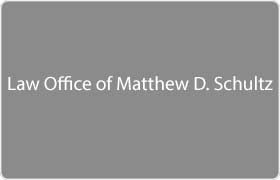 Cocoa White Collar Crime Lawyers, Florida
Cocoa White Collar Crime Lawyers, Florida
Sponsored Law Firm
-
 x
x

Click For More Info:
-
Law Office of Matthew D. Schultz
495 Grand Blvd. Suite 206 Miramar Beach, FL 32550» view mapAccident & Injury Law Over 25 Years of Experience
Mr. Schultz is an accomplished lawyer that has over twenty-five years of legal experience in accident & injury matters.
800-960-5971
Lawyers
1-5 of 5 matches
Banking & Finance, Employment, Construction, White Collar Crime
Consumer Rights, Criminal, Lawsuit & Dispute, Veterans' Affairs, White Collar Crime
Antitrust, White Collar Crime, Workers' Compensation, Tax, Contract




 Matthew Schultz Saint Cloud, FL
Matthew Schultz Saint Cloud, FL Practice AreasExpertise
Practice AreasExpertise